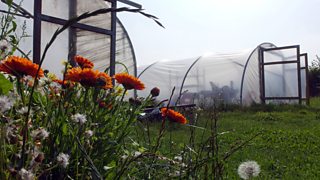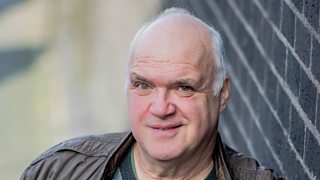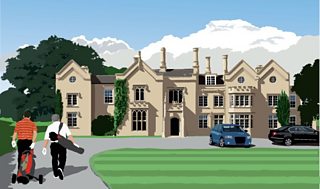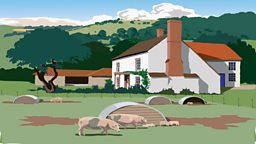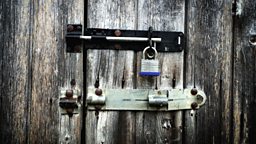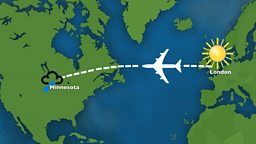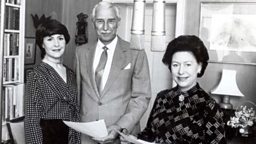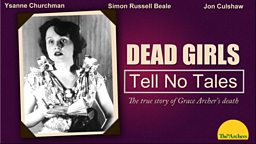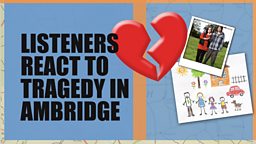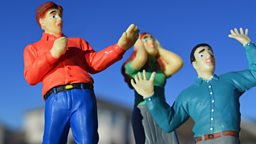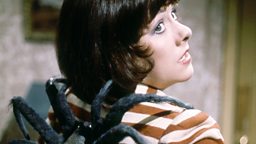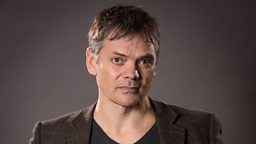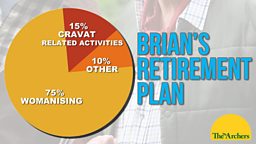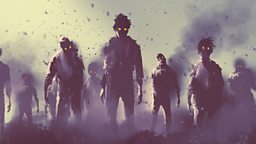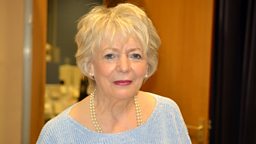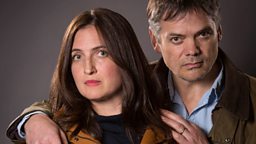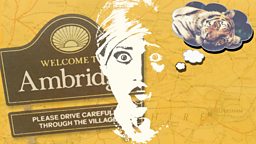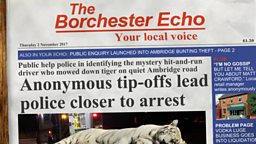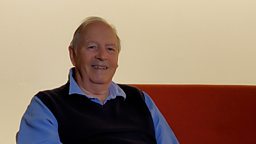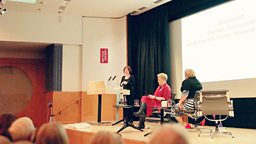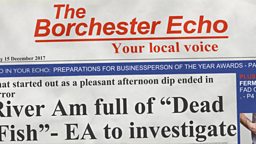'Far closer to home than you imagine': Why The Archers took on modern slavery
A well-to-do county like Borsetshire may not be the first place that springs to mind as being part of a corrupt network of human traffickers. Yet, as listeners to The Archers have discovered more about the underhand way in which Philip Moss runs his business, it has become apparent that it certainly is. With plans for an idyllic retirement in rural Wales, Philip has decided to hand the keys of his builder’s van to his son Gavin and wind up his business. It won’t be old equipment that he sells on, but Blake, Kenzie and Jordan, the three young men – or ‘horses’ (workhorses) who work for him.
Shocking as this may seem, modern slavery is a very real issue in Britain. Here’s how the crime has been playing out in our quiet corner of rural Borsetshire.
The Grey Gables explosion
In the spring of 2020, an explosion shook Ambridge. When the Grey Gables hotel kitchen went up in flames, an outpouring of concern was directed at local treasure Lynda Snell, who was caught up in the blast, and Freddie Pargetter, who rescued her. Ambridge residents and listeners alike were left confused as to how such an event could have occurred. Eventually, the finger was pointed at Blake, a young worker who lit the kitchen grill while working with a flammable substance. He sustained devastating injuries, but received little sympathy from many who viewed the explosion as his fault.
Very often the vulnerability that is being exploited is a desperate situation such as poverty, homelessness, just out of prison.Charity Hope for Justice
It turned out, however, that his actions were rooted more in desperation than carelessness. Gavin had forgotten to provide Blake with food, and petrol had been used as a cheap fix for lifting the kitchen floor. Blake’s attempts to feed himself had dire consequences, and during the course of his recovery listeners discovered the full extent of the influence Philip and Gavin Moss had over his life. Not only was Blake prohibited from buying food, he was discharged early from hospital by Philip, prevented from talking to strangers, driven around in Philip’s van, and kept hidden in a flat. Kenzie and Jordan received similar treatment.
Why not leave?
The level of surveillance that these young men are subject to is common among victims of trafficking. According to , one of the organisations consulted for this story, the climate of fear and dependency that this creates can be as effective as physical confinement and rough handling when it comes to preventing victims from escaping. The Hope for Justice website explains that traffickers can use “shame as a weapon” as well as instilling in victims with a fear of police. Because Blake was made to feel responsible for the Grey Gables explosion, he lives in fear that he will be arrested, which is enough to keep him hidden. Blake’s fear of the police meant the slave owners didn’t have to worry about him reporting them.
Grateful for their lot
Despite the shocking way the men were controlled and objectified, it seems as though they wouldn’t leave even if they weren’t kept in a flat under lock and key. A common tactic of traffickers is to seek out vulnerable individuals such as addicts or the homeless. We recently heard of the hardship Blake, Kenzie and Jordan faced before working for Philip; after fleeing abuse and difficult home lives, they found themselves sleeping rough. The men were so desperate not to return to life on the streets that they felt gratitude to Philip. Blake even goes so far as to suggest buying Philip a thank you card for training them up and housing them.
Modern slavery is far closer to home than you imagine β which is why we brought it crashing into everyday life in Ambridge.Jeremy Howe, Editor of The Archers
Susan Banister, of Hope For Justice, explains that it is quite common for vulnerable victims to feel gratitude to their traffickers. She says: “Stockholm syndrome is very common. Very often the vulnerability that is being exploited is a desperate situation such as poverty, homelessness, just out of prison. The trafficker is offering a roof over their head, food and work. They perceive this is better than before and are told by the trafficker that they are doing them a favour.”
The young men working for Philip didn’t question their forced, unpaid labour because they viewed themselves as ‘apprentices’ and assumed it would lead to paid work in the future. Little do they know they will be sold as slaves, into conditions which could be far worse.
Even in Ambridge?
It may come as a surprise to some people that human trafficking doesn’t have to involve crossing borders. “Internal trafficking” involves an individual being recruited in one area or city and moved to another for exploitative purposes. And this isn’t just an issue in war-torn or developing countries. Current estimates from the Global Slavery Index suggest that there are as many as 136,000 victims of modern slavery in the UK alone. Last year, 10,627 victims were referred to the National Referral Mechanism, a framework for identifying, referring and supporting potential modern slavery victims. Of these, 60% were cases of forced labour – the fate that has befallen Blake, Kenzie and Jordan.
Quiet rural areas like Ambridge are no exception. As Susan Banister explains: “Modern slavery is found anywhere where there is the need for low paid labour. In many ways, smaller businesses will not have the same amount of knowledge as larger businesses. (Under the Modern Slavery Act of 2015, only businesses with a turnover of £36million or more are required to produce a modern slavery statement.) Therefore it is easier for a trafficker to hide someone in plain sight.
The actor Andy Hockley who plays Philip Moss describes him as "a deeply flawed human being". He adds,"[Philip] truly believes he’s done an honourable thing in taking Blake, Kenzie and Jordan off the streets, but is contemptuous in his references to them. [He] refuses, or is unable to quantify any wrong-doing on his part".
How to help
Jeremy Howe, Editor of The Archers, explains why the storyline came about: “Modern slavery is far closer to home than you imagine – which is why we brought it crashing into everyday life in Ambridge, butting up against people like you and me. Few would have expected Philip Moss to be a gangmaster. Modern slavery is a scourge, and The Archers decided to shine a light on it.” While the futures of Blake, Jordan and Kenzie are uncertain, there is hope yet for vulnerable people in similar situations.
Organisations such as and Hope for Justice are working to help members of the public spot signs of trafficking, remove victims from situations of exploitation, and provide them with support and aftercare. Susan Banister explains that raising awareness of modern slavery in any capacity can have a significant impact on the number of referrals. “We need to help people realise that modern slavery happens everywhere. Using popular culture sparks the conversation and that is a really good thing because more people question what they are seeing.”
If you suspect someone is a victim of modern slavery, or is trafficking individuals, you should report it to the Modern Slavery Helpline or the police on 101. In an emergency situation, contact the police by phoning 999.
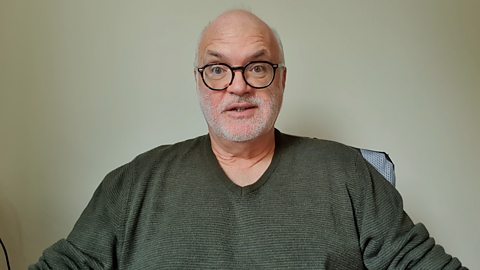
What to look for to spot modern day slavery
Actors Andy Hockley and Gareth Pierce share advice on identifying modern slavery victims.
